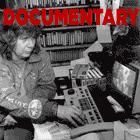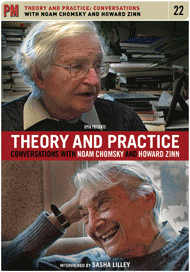Clemency is an interesting concept in America. Tonight, it has been announced that California governor Arnold Schwarzenegger will not be granting it to death row inmate Stanley Tookie Williams. Williams was found guilty of killing four people in 1979. He says he's innocent. We don't presume to defend his innocence, we don't think he should be executed regardless. There are a hundred and one reasons, from personal experience to the findings of the
Sentencing Project, that have convinced us that, whatever feelings anyone has about the ethics of capital punishment, the American state is not to be trusted with this. But defenders of Tookie Williams aren't generally making critiques of the capitalist state. They are saying that Tookie changed and that we should recognize when a man changes.
Schwarzenegger is the kind of man you would expect to be sympathetic to change. He's been accused of making
racial slurs,
groping numerous women, and that isn't the worst of it. His father was a nazi in Austria and while we won't make him suffer from the sins of the father, he invited Kurt Waldheim to his wedding and toasted him. Kurt Waldheim? You know, the nazi-war-criminal-banned-from-the-United-States-Kurt-Waldheim. That Kurt Waldheim. Did he invite Gigi Goyette? Type that name into google and do the math. What it adds up to is statutory rape and adultery. But Schwarzenegger has denied and sought forgiveness for that which he doesn't deny. Which is interesting. Because on one hand you would expect an adultering racist who slept with sixteen year olds to understand change. But on the other hand, maybe it isn't so surprising after all.
A lot of people have been reading
George Jackson on the site today. This didn't make sense until I read Schwarzenegger's full text denial of clemency. The pertinent details can be found on pages four and five (it can be found easily enough online):
The dedication of Williams’ book “Life in Prison” casts significant doubt on his personal redemption. This book was published in 1998, several years after Williams’ claimed redemptive experience. Specifically, the book is dedicated to “Nelson Mandela, Angela Davis, Malcolm X, Assata Shakur, Geronimo Ji Jaga Pratt, Ramona Africa, John Africa, Leonard Peltier, Dhoruba Al-Mujahid, George Jackson, Mumia Abu-Jamal, and the countless other men, women, and youths who have to endure the hellish oppression of living behind bars.” The mix of individuals on this list is curious. Most have violent pasts and some have been convicted of committing heinous murders, including the killing of law enforcement.
But the inclusion of George Jackson on this list defies reason and is a significant indicator that Williams is not reformed and that he still sees violence and lawlessness as a legitimate means to address societal problems.
The punishment, apparently, for seeing violence as a legitimate means to address societal problems is the death penalty. The foolishness of this line of reasoning is obvious. What is so much more painful is simply knowing Schwarzenegger's respect for Reagan. Reagan, whose long list of crimes against humanity simply offend the idea of summary, was a violent thug who made a mockery of the law with an apple in his eye and a quick pat joke. Reagan, whose idea on dealing with campus activists as a governor was "If it takes a bloodbath, let's get it over with. No more appeasement." The idea that the symbolic indicator of one's lack of redemption is their respect for George Jackson is a cruel joke.
Redemption plays heavy in the bible. It is about not having our debt (i.e. to God) forgiven, but having paid it in full. Christ, so the Bible goes, paid our sin off in full. It is one interpretation to reduce George Jackson to a mere violent thug. Jackson's violence in the California prisons shouldn't be the subject of any debate. Schwarzenegger reduces Jackson to this biography:
George Jackson was a militant activist and prison inmate who founded the violent Black Guerilla Family prison gang. Jackson was charged with the murder of a San Quentin correctional officer. In 1970, when Jackson was out to court in Marin County on the murder case, his brother stormed the courtroom with a machine gun, and along with Jackson and two other inmates, took a judge, the prosecutor and three others hostage in an escape attempt. Shooting broke out. The prosecutor was paralyzed from a police bullet, and the judge was killed by a close-range blast to his head when the shotgun taped to his throat was fired by one of Jackson’s accomplices. Jackson’s brother was also killed. Then, three days before trial was to begin in the correctional officer murder case, Jackson was gunned down in the upper yard at San Quentin Prison in another foiled escape attempt on a day of unparalleled violence in the prison that left three officers and three inmates dead in an earlier riot that reports indicate also involved Jackson.
Nowhere is mentioned the fact that his brother, Jonathan, was seventeen at the time. My understanding of the shooting that killed Jonathan, the judge, a prosecutor, and the other prisoners that Jonathan had freed was that they were killed by the police instead of being allowed to escape. This is less crazy than it might first sound. First, Jonathan had kidnapped the judge to hold hostage to get his idolized brother's release. Why would he kill his hostage before getting his brother out? Second, just over a month later during the Attica prison uprising, the National Guard retook the prison and killed eleven prison guards who were being held hostage.
As for Jackson's own "foiled escape attempt," this is simply not to be taken seriously. Jackson had a hearing coming up for his release. He was an extremely charismatic and intelligent black revolutionary and he was assassinated in the same way that Fred Hampton was assassinated. George Jackson's threat was actually not his "unparalleled" (!) violence, but his recognition that antisocial violence was not the answer and that it was time to organize to overthrow the a capitalist racist state that was every day dropping napalm on children in Vietnam and shooting black organizers in their sleep in Chicago. This is a kind of redemption. Not the easy redemption of the sunday television preacher. No, this is
Malcolm preying on his community as a common street pimp and rising to be buried as
a Black shining prince. That redemption.
If Williams is seen as a criminal and we are supposed to believe that an honest examination was made to see if he is seeking redemption, then his dedication to Jackson is critical evidence. But in the mainstream discussion, where a man who respects a criminal who sent death squads into whole countries to rape and kill can be governor, all is topsy-turvy. Through the looking-glass, Jackson's writing deserves no mention in his biographical footnote and he is simply another thug. Through this lens, it is pertinent to mention, as Schwarzenegge's writers do, that Williams is said to have "made a growling noise." Animals growl. In this context, all of this, George Jackson, guilt, all of it is meaningless.
In less than an hour's time, Stanley Williams will be executed. I am not a writer. I have no astute and profound end to this garbled note. Right now, I have only anger.
In frustration, typed in Gil Scott-Heron's
Black History. 2:48 am EST.
 Reading the excellent interview book with Angela Davis. She's interviewed by Eduardo Mendieta who also does things like serve as the executive editor of Radical Philosophy Review. The interviews are just exceptional as she tackles and unpacks so many of the assumptions of the contemporary mainstream discussion about prison, torture, and the war. As the nature of interview books go, it is relatively light reading, but it never feels like a waste because her language is almost a political poetry, interrogating each question and then, only after examination, delivering one stirring response after another. Apparently, she has a book she's working on called Prisons and History. I can't wait to see it.
Reading the excellent interview book with Angela Davis. She's interviewed by Eduardo Mendieta who also does things like serve as the executive editor of Radical Philosophy Review. The interviews are just exceptional as she tackles and unpacks so many of the assumptions of the contemporary mainstream discussion about prison, torture, and the war. As the nature of interview books go, it is relatively light reading, but it never feels like a waste because her language is almost a political poetry, interrogating each question and then, only after examination, delivering one stirring response after another. Apparently, she has a book she's working on called Prisons and History. I can't wait to see it. 





